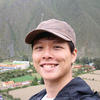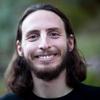MUS423 Research Seminars
The CCRMA Music 423 Research Seminar brings graduate students and supervising faculty together for planning and discussion of original research. Students and faculty meet either in small groups or individually, as appropriate for the research topics and interests of the participants. Research carried out is typically presented at the weekly CCRMA Colloquium (if it is of general interest to the CCRMA community) or at a Special DSP Seminar scheduled for that purpose. In either case, announcements appear on the CCRMA Home Page as Upcoming Events.
Recent DSP Seminars
Python Programs and Book for building an audio coder and for deep learning for audio
Date:Fri, 10/07/2022 - 3:30pm - 4:20pmEvent Type:DSP SeminarLocation: CCRMA Classroom [Knoll 217] FREEOpen to the Public
FREEOpen to the PublicTransformers for Applications in Audio, Speech and Music: From Language Modeling to Understanding to Synthesis
Date:Thu, 05/19/2022 - 5:30pm - 6:30pmLocation:CCRMA Classroom [Knoll 217]Abstract: Transformers have touched many fields of research and music/audio is no different. This talk will present 3 of my papers as case studies on how we can leverage the power of Transformers in representation learning, signal processing, and clustering. First, we discuss how we're able to beat the wildly popular WaveNet architecture, proposed by Google-DeepMind for raw audio synthesis. We also show how we overcame the quadratic constraint of the Transformers by conditioning on context. Secondly, a version of Audio Transformers for large-scale audio understanding, inspired by viT, operating on raw waveforms, is presented.Event Type:DSP SeminarFREEFor CCRMA Users OnlyKleinPAT: Optimal Mode Conflation For Time-Domain Precomputation Of Acoustic Transfer - Jui-hsien Wang, Adobe Research
Date:Fri, 05/29/2020 - 5:30pm - 6:30pmLocation:ZoomEvent Type:DSP SeminarAbstract: We propose a new modal sound synthesis method that rapidly estimates all acoustic transfer fields of a linear modal vibration model, and greatly reduces preprocessing costs. Instead of performing a separate frequency-domain Helmholtz radiation analysis for each mode, our method partitions vibration modes into chords using optimal mode conflation, then performs a single time-domain wave simulation for each chord. We then perform transfer deconflation on each chord’s time-domain radiation field using a specialized QR solver, and thereby extract the frequency-domain transfer functions of each mode. The precomputed transfer functions are represented for fast far-field evaluation, e.g., using multipole expansions. FREEOpen to the Public
FREEOpen to the PublicComplex Nonlinearities for Audio Signal Processing
Date:Fri, 04/24/2020 - 5:30pm - 6:30pmLocation:Online Zoom MeetingEvent Type:DSP SeminarWe present an ongoing study of new and interesting nonlinear structures for audio signal processing, intended to be used for audio effects and synthesis. The broad intention is to fill the gap between simple, memoryless nonlinearities, and physics-based nonlinear models that require significant knowledge outside of DSP. We give a brief discussion of each nonlinear structure, and present a series of open-source audio plugins that implement the structures. Write-Up in Progress
To receive your Zoom meeting link via email, please RSVP
FREEOpen to the PublicDDSP: Differentiable Digital Signal Processing
Date:Tue, 02/18/2020 - 5:30pm - 7:00pmLocation:CCRMA Classroom [Knoll 217]Event Type:DSP SeminarAbstract: Classical DSP techniques have recently been overshadowed by deep learning for applications such as image recognition and audio generation. End-2-end learning has been key to this shift, enabling the optimization of high-dimensional nonlinear functions. However DSP techniques provide interpretability, modularity, and efficiency lacking from black-box deep networks. In this talk, I'll review the Differentiable Digital Signal Processing (DDSP) library, which enables direct integration of classic signal processing elements with deep learning methods. FREEOpen to the Public
FREEOpen to the PublicVCV Rack: Open-source virtual modular synthesis and introduction to module development in C++
Date:Wed, 07/03/2019 - 5:30pm - 7:00pmLocation:CCRMA Class Room [Knoll 217]Event Type:DSP SeminarAbstract: VCV Rack is a new open-source virtual modular synthesizer for Mac/Windows/Linux based on the appearance, sound, and functionality of Eurorack and other modular formats. Its first stable version, 1.0, was recently released, including modular polyphony, a multi-threaded DSP engine, MIDI input/output, MIDI parameter mapping, and several other frequently-requested features. Rack's license allows open-source, freeware, and commercial plugins to be built using Rack's SDK, and its community has grown in the last two years to over 100,000 users and around 150 plugin developers, with over 1,200 modules currently available.
Rack is written in C++ and processes modules with 1-sample buffers to allow low-latency feedback in patches.
FREEOpen to the PublicDeep Waveform Synthesis
Date:Thu, 05/30/2019 - 5:30pm - 7:00pmLocation:CCRMA Class Room [Knoll 217]Event Type:DSP SeminarAbstract: Conventional audio synthesis (TTS, voice conversion, enhancement, etc) often relies on acoustic feature representations (spectrogram, MFCC, F0, etc.) and a signal processing procedure that infers the waveform from these features. However, such procedures often introduce artifacts caused by insufficient information in the feature representation (e.g. iSTFT without the correct phase info) and/or an oversimplified synthesis process (e.g. a source-filter model). Recent advancements battle this problem using deep learning: WaveNet, for example, generates the waveform sample-by-sample based on acoustic features and previously generated samples using a dilated convolutional net. FREEOpen to the Public
FREEOpen to the PublicMATLAB/Simulink Tools for Deep Learning, Signal Analysis, and Physical Modeling for Audio
Date:Thu, 05/16/2019 - 5:30pm - 7:00pmLocation:CCRMA Class Room [Knoll 217]Event Type:DSP SeminarAbstract: MathWorks engineers will present an overview of MATLAB/Simulink functionality related to current CCRMA research, such as Deep Learning for Signal Processing (especially audio and music), Signal Analyzer App for working with signals in the time and frequency domains, and Simscape for Physical Modeling (spring-mass-damper systems, circuits, etc.). FREEOpen to the Public
FREEOpen to the PublicFrom signal representations to musical creation: a geometric approach
Date:Thu, 04/25/2019 - 5:30pm - 7:00pmLocation:CCRMA Class Room [Knoll 217]Event Type:DSP SeminarCarmine Emanuele Cella, assistant professor in music and technology at CNMAT, will present work done in the last years in searching good signal representations that permit high-level manipulation of musical concepts. After the definition of a geometric approach to signal representation, the theory of sound-types and its application to music will be presented. Finally, recent research on assisted orchestration will be shown and some possible musical applications will be proposed, with connections to deep learning methods.
CNMAT, University of California, Berkeley: http://www.carminecella.com/index.html
Open to the PublicApplied Machine Learning for Audio Classification
Date:Fri, 04/19/2019 - 5:30pm - 7:00pmLocation:CCRMA Class Room [Knoll 217]Event Type:DSP SeminarAbstract: Ale Koretzky, Head of Machine Learning at Splice.com and creator of tuneSplit, will discuss and compare approaches and techniques for Audio Classification; from simple Nearest Neighbor methods like k-NN, to Decision Trees to Convolutional Neural Networks (CNN) and Deep Autoencoders. Using examples with real data, Koretzky will address the importance of both Feature Engineering and Feature Learning and how they can work together. At the end of the session, students should be able to implement most of the techniques but more importantly, develop the key intuitions behind Audio Classification in order to address any related problem with domain-specific data. FREEOpen to the Public
FREEOpen to the Public

